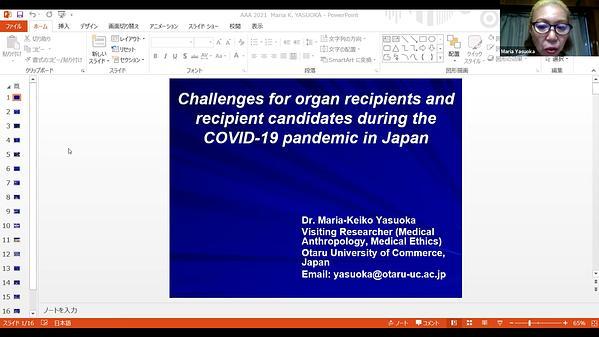Would you like to see your presentation here, made available to a global audience of researchers?
Add your own presentation or have us affordably record your next conference.
keywords:
medical education
global health
biomedicine
As medical anthropologists we strive to better understand factors which influence health and well-being. A strategic way for anthropologists to enhance our understanding of and inform health care is to influence the training of allopathic physicians to improve patient care and population health. We invite professionals and students to this round table discussion to enhance the training of anthropologists for medical school careers, and to influence medicine to better understand anthropology roles and expertise. Anthropologists in medical schools often provide multidimensional social science and humanities material across the basic science and clinical phases of the curriculum. These often include a focus on culturally sensitive patient care, family and community life situations, health inequalities and structural vulnerabilities, caring for culturally diverse communities, bioethics, narrative, reflective writing and thinking, as well as a socio-structural lens on health and related policies. With the 2021 publication of the book, “Anthropology in Medical Education: Sustaining Engagement and Impact,” numerous recommendations from the chapter authors are noted in the concluding chapter by Dennis Wiedman and Iveris Martinez: “Contributions, Constraints, and Facilitations for Sustained Engagement of Anthropology in Medical Education.” Of major importance are the differences in the “culture of medicine” and the “culture of anthropology,” that constrain anthropologists from fully participating, thriving, and surviving in medical schools. Major issues identified are medical school teaching credentialing, identity loss and isolation, status gap, lack of adequate preparation for roles in medicine, making anthropological perspectives clinically relevant and vice versa, developing productive curricular collaboration with clinical and basic science faculty, what is considered as evidence, influencing testing and the MCAT exam, supportive professional organizations, and changing the culture of anthropology. A purpose of this round table is to stimulate discussions, publications, policies, and actions to address issues presented by the chapter authors. Each of the presenters will provide their experiences and perspectives on issues considered most important followed by our discussant. Most of the time will be an open forum for audience dialog on these issues.

